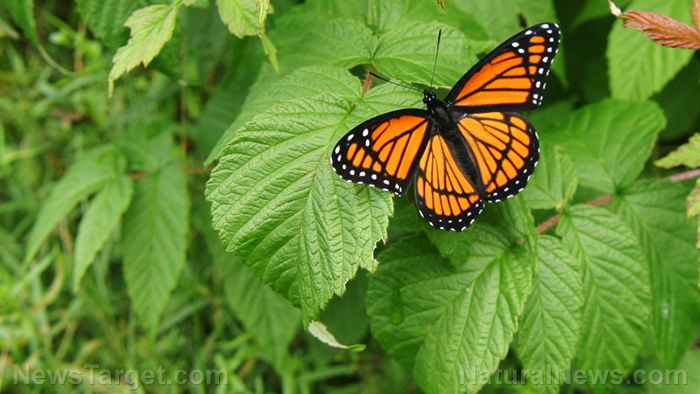Study: Habitat destruction to blame for the demise of monarch butterflies in California
05/16/2019 / By Edsel Cook

Bees are not the only pollinating insects in danger of disappearing from the face of the Earth. The population of monarch butterflies in California has dwindled to alarming levels after the destruction of so much of their natural habitat.
A recent study by the Xerces Society for Invertebrate Conservation warns that the number of butterflies spending the winter in central and southern California has dropped to the lowest level ever seen. Researchers say there are less than 29,000 individuals during the winter of 2018 – in comparison, there used to be around 4.5 million of the insects during the 1980s.
The monarch butterfly population in the eastern U.S. has also undergone a massive drop in numbers over the years. However, they did not lose as many as the West Coast butterflies.
Experts say that the loss and destruction of natural habitats are to blame for the plummeting numbers of monarch butterflies. The animals exclusively feed on milkweed, but humans consider that plant to be a pest and have destroyed most of them, thereby depriving the butterflies of their food source.
Humans degrade or destroy the winter homes of monarch butterflies in California
Once the weather starts getting too cold, monarch butterflies fly south to warmer areas. Most of them spend the winter in Mexico, but many also stay around Santa Cruz, California.
Monarch butterflies in Idaho and other western states prefer to spend winter in central and southern California. Researchers observed large numbers of the insects taking up residence in the tall trees that line the coasts.

When spring breaks, the butterflies start looking for milkweed and nectar that are close to their over-winter sites. After stocking up, they will head back to their summer homes.
However, much of the monarch butterfly habitats in the central valley, coastal foothills, and foothills of the Sierra Madre mountains have been damaged or destroyed by human activity. Many of the big trees that shelter the animals during the winter season are either too old or are no longer there, having been either cut down by humans or brought down by natural actions.
Other contributing factors to the broken migratory chain of 2018 include pesticides that indiscriminately kill insects and wildfires that destroy milkweed and trees alike. The latter deprives the butterflies of both food and shelter.
Efforts to save monarch butterflies include planting and preserving milkweed
In response to the rapidly dwindling number of monarch butterflies in the western United States, the Xerces Society is mobilizing efforts to save the endangered species. They are urging Californians to plant milkweed and flowers that bloom very early. Those plants will provide migratory butterflies with enough food to sustain them on their flight to other states.
Other researchers are teaching locals about the importance of leaving at least some milkweed around to serve as habitats for the animals. Many people are surprised to find out that the plant they consider to be a pest is vital to the life cycle of these beautiful and essential insects.
“This is my name for milkweed, it should be called ‘monarch manna’ because it is so important,” said Idaho-based conservationist Beth Waterbury, who is trying to change public attitudes toward milkweed. “So many people do not know that it is the only plant that monarchs will lay their eggs on.”
The monarch butterfly is one of the many natural pollinators of flowering plants. They are much more vulnerable to factors that harm other pollinators – the pesticides that kill monarch butterflies also threaten even more important bees – so anything that causes their population to drop precipitously can be expected to affect other similar animals.
Sources include:
Submit a correction >>
Tagged Under:
This article may contain statements that reflect the opinion of the author





















